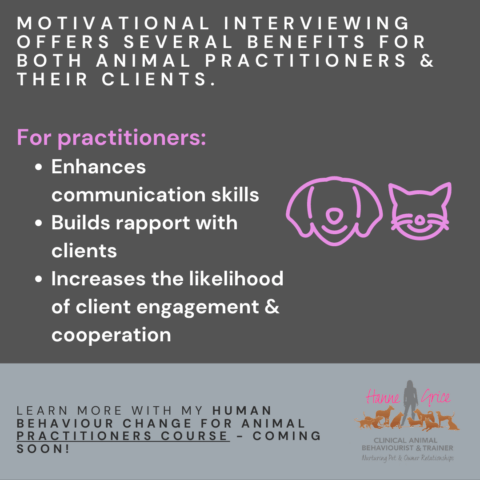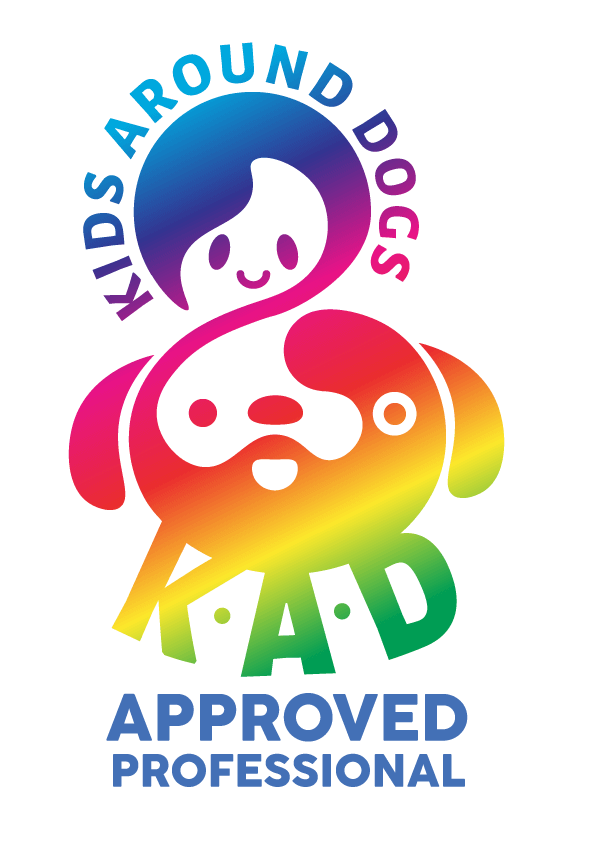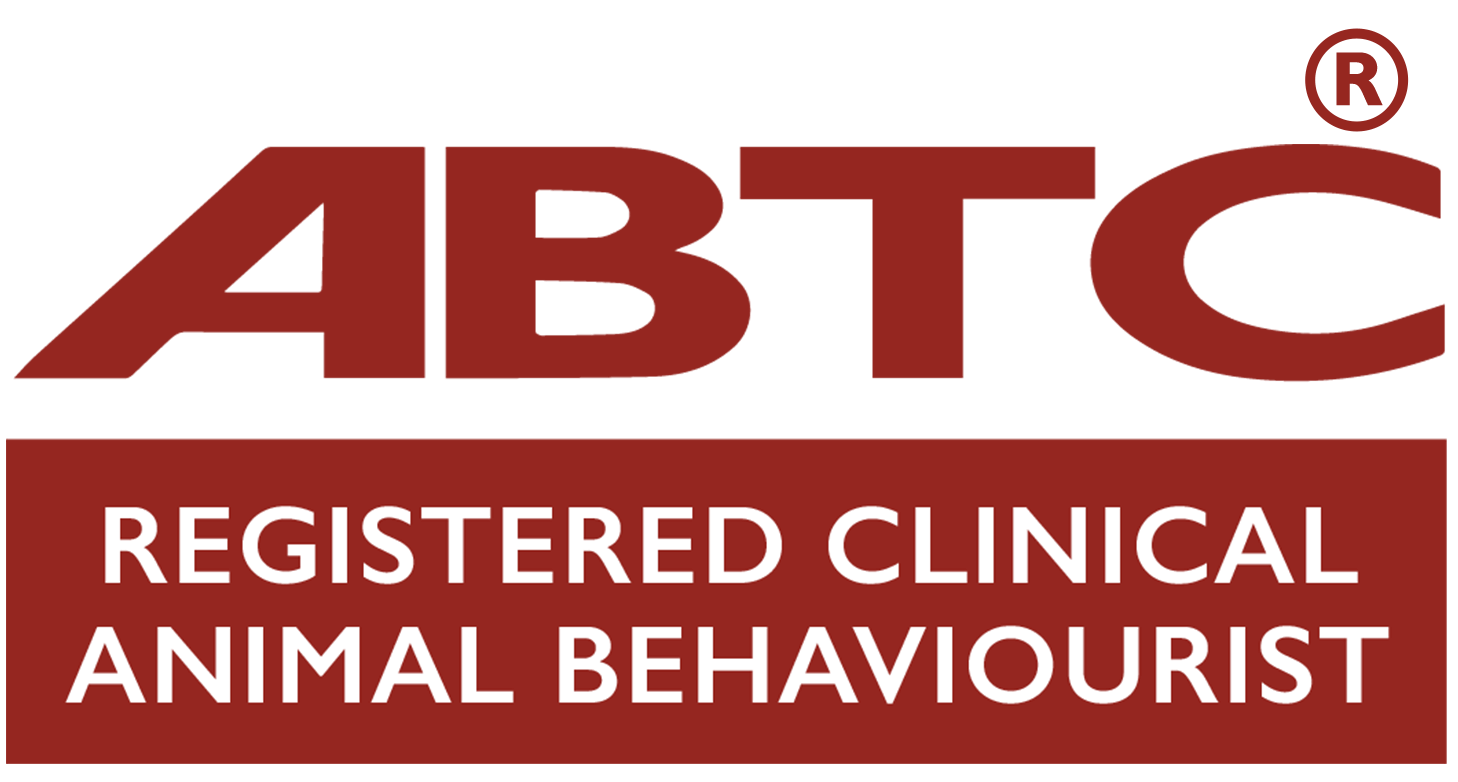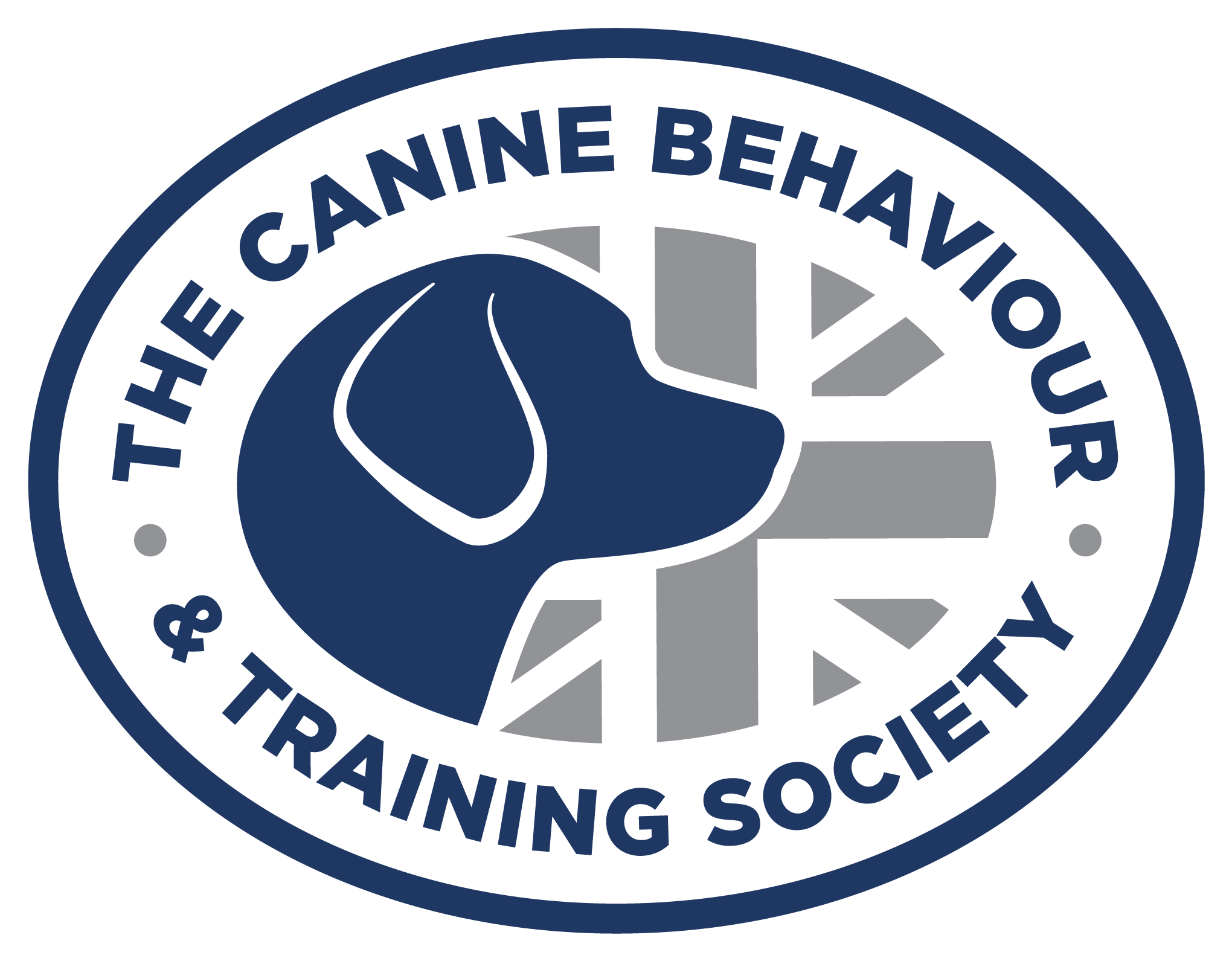This article is aimed at animal practitioners to help them better understand their clients, and a technique that can contribute to effective communication, which can improve the likelihood for client cooperation.
Animal behaviourists and training instructors play a crucial role in helping pet owners address and modify problematic behaviours in their animal companions. Often, successful behaviour modification programmes rely not only on technical expertise but also on effective communication strategies. One such approach that has shown to be highly valuable is motivational interviewing. Motivational interviewing is a client-centred counselling style that encourages individuals to explore and resolve ambivalence about behaviour change. Originally developed in the field of human psychology, this technique has found great success in various domains, including animal behaviour. In this article, we will delve into the principles of motivational interviewing, provide examples of its application in animal behaviour consultations or training sessions, and discuss its benefits for both clients and animal behaviourists and trainers.
Understanding Motivational Interviewing
Motivational interviewing is based on the premise that individuals are more likely to change their behaviour when they feel motivated and ready to do so. It involves a collaborative and empathetic approach, helping clients discover their own motivations for change. The core principles of motivational interviewing include expressing empathy, developing discrepancy, rolling with resistance, and supporting self-efficacy.

Examples of Motivational Interviewing in Animal Behaviour and Training
- Empathy: Animal behaviourists and trainers (also referred to as the ‘practitioner’) practicing motivational interviewing demonstrate empathy by actively listening to their clients and validating their experiences. They create a safe and non-judgmental space for clients to express their concerns and frustrations regarding their pet’s behaviour and training needs. For example, when a client expresses frustration with their dog’s incessant barking, the practitioner may respond by saying, “It sounds like the constant barking is really getting to you. Can you tell me more about how it’s affecting your daily life?”
- Developing discrepancy: Motivational interviewing helps clients recognise the discrepancy between their current behaviour and their desired goals. Animal practitioners can facilitate this process by highlighting the impact of their pet’s behaviour on their overall well-being. For instance, if a client is struggling with a cat’s destructive scratching behaviour, the behaviourist may ask, “How does it feel when you come home to find your furniture damaged? When you envision a harmonious home, does this situation fit into that image?
- Rolling with resistance: Resistance to change is common among clients seeking behaviour modification for their pets. Rather than confronting resistance directly, motivational interviewing encourages the practitioner to “roll with” it. This involves understanding the client’s perspective and gently exploring the reasons behind their resistance. For example, if a client insists that their dog’s aggression is just a natural part of the breed, the practitioner may respond by saying, “I hear that you believe aggression is inherent in your dog’s breed. Can you tell me more about that belief?”
- Supporting self-efficacy: Motivational interviewing fosters clients’ belief in their ability to make the necessary changes. Animal practitioners can enhance self-efficacy by highlighting past successes or strengths the client possesses. For instance, if a client is doubtful about their ability to train their dog to walk on a lead, the practitioner might say, “You mentioned that you were able to successfully teach your dog to sit. That’s excellent and shows you have the skills to tackle loose lead training too!”

Benefits for Animal Behaviourists and Clients
Motivational interviewing offers several benefits for both animal practitioners and their clients. For practitioners, it enhances communication skills and helps build rapport with clients. It also increases the likelihood of client engagement and cooperation throughout the behaviour modification or training programme. Clients, on the other hand, experience a sense of autonomy and empowerment as they discover their motivations for change. They are more likely to be invested in the behaviour modification and training process, leading to better outcomes for their pets.
Key take-aways
Motivational interviewing is a powerful tool for animal practitioners working on behaviour modification and training programmes with their clients. By employing empathy, developing discrepancy, rolling with resistance, and supporting self-efficacy, practitioners can help clients find their own motivations for change. This approach enhances communication, engagement, and cooperation, leading to more successful outcomes for both clients and their animal companions. By integrating motivational interviewing into their practice, animal practitioners can make a significant positive impact on the lives of pets and their owners, carers and or keepers.
Want to learn more? Check out my Learning Hub which includes courses aimed at animal professionals to develop their knowledge and understanding about human-animal interactions and improve the client-animal practitioner relationship, to increase the success of behaviour/training modification programmes and client cooperation.
References:
- Miller, W. R., & Rollnick, S. (2013). Motivational interviewing: Helping people change. Guilford Press.
- Lundahl, B., & Burke, B. L. (2009). The effectiveness and applicability of motivational interviewing: A practice-friendly review of four meta-analyses. Journal of clinical psychology, 65(11), 1232-1245.
- Nieuwsma, J. A., Trivedi, R. B., McDuffie, J., Kronish, I., Benjamin, D., & Williams, J. W. (2012). Brief motivational interviewing for depression and medication adherence in the primary care setting: a systematic review and meta-analysis. Journal of general internal medicine, 27(12), 1469-1478.
Learn more about our classes

Get Hanne's Book
Playing With Your Dog will help any dog owner work out the games that are best suited for their pet to play throughout his life, from puppyhood to old age. The book also shares some tricks for all ages, group activities, and recommended toys that dogs will enjoy.

























